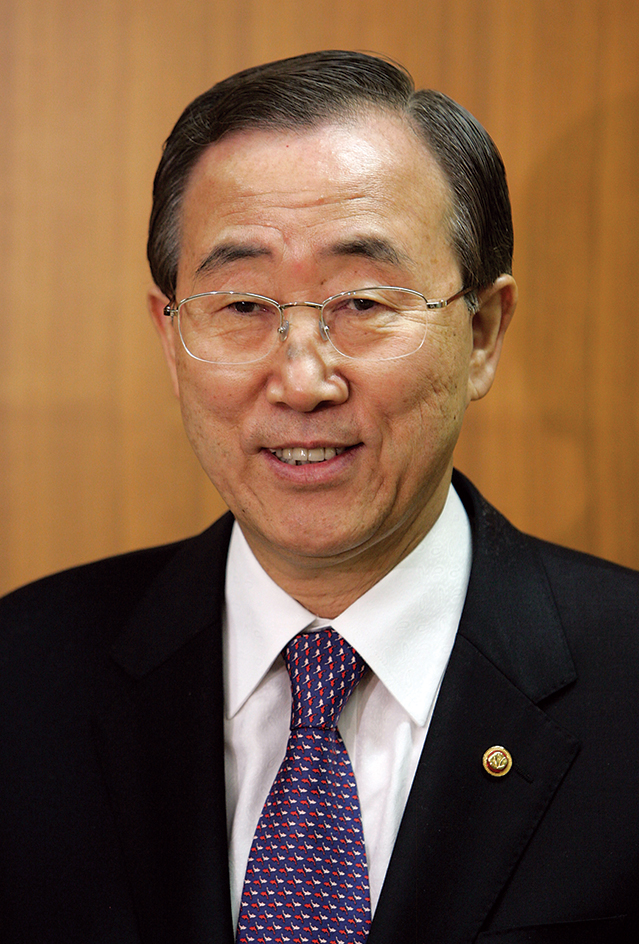Ban Ki-moon (1944-…) is a South Korean diplomat who served as the eighth secretary-general of the United Nations (UN) from 2007 to 2016. The UN General Assembly elected Ban in October 2006 to replace Kofi Annan of Ghana. In 2011, Ban was re-elected to a second five-year term that began in 2012. Ban previously served as South Korea’s minister of foreign affairs and trade from 2004 to 2007.

Ban was born on June 13, 1944, in Chungju, Korea. He earned a bachelor’s degree in international relations from Seoul National University in 1970 and a master’s degree in public administration from Harvard University in the United States in 1985.
Ban’s diplomatic career included posts as a foreign minister in Austria, India, New York City, and Washington, D.C. He played a leading role in the six-nation talks aimed at curbing North Korea’s nuclear weapons program.
Ban’s ties with the UN began in 1975, when he began working as a staff member in South Korea’s UN division in Seoul. He was also the chief secretary to the president of the 56th session of the UN General Assembly that met from September to December 2001. In that position, Ban played a major role in pushing forward the session’s first resolution that condemned the September 11 terrorist attacks upon the United States.
After becoming UN secretary-general in 2007, Ban championed human rights and made the issue of climate change one of his top priorities. He launched a number of international initiatives and diplomatic efforts to fight climate change. In 2015, Ban secured a landmark international agreement to combat climate change. The Paris Climate Change Agreement went into force in November 2016. The accord seeks to limit the average rise in global temperature during the 2000’s to well below 3.6 degrees Fahrenheit (2 degrees Celsius) and to limit the temperature increase even further to 3.5 degrees Fahrenheit (1.5 degrees Celsius). Ban also played a major role in the 2030 Agenda for Sustainable Development, a set of 17 goals adopted by world leaders at a UN summit in 2015. Under the agenda, all countries are to mobilize efforts to end all forms of poverty, fight inequalities, and protect the planet over the next 50 years.
During his tenure as the world’s top diplomat, Ban drew criticism for his lack of progress in reforming UN institutions, for his inability to end the five-year war in Syria, and for his failure to solve the international refugee crisis that resulted from conflicts in parts of the Middle East and Africa. Critics also attacked Ban for his handling of a deadly cholera outbreak in Haiti that began in a UN camp following the 2010 earthquake.
See also United Nations (UN).
